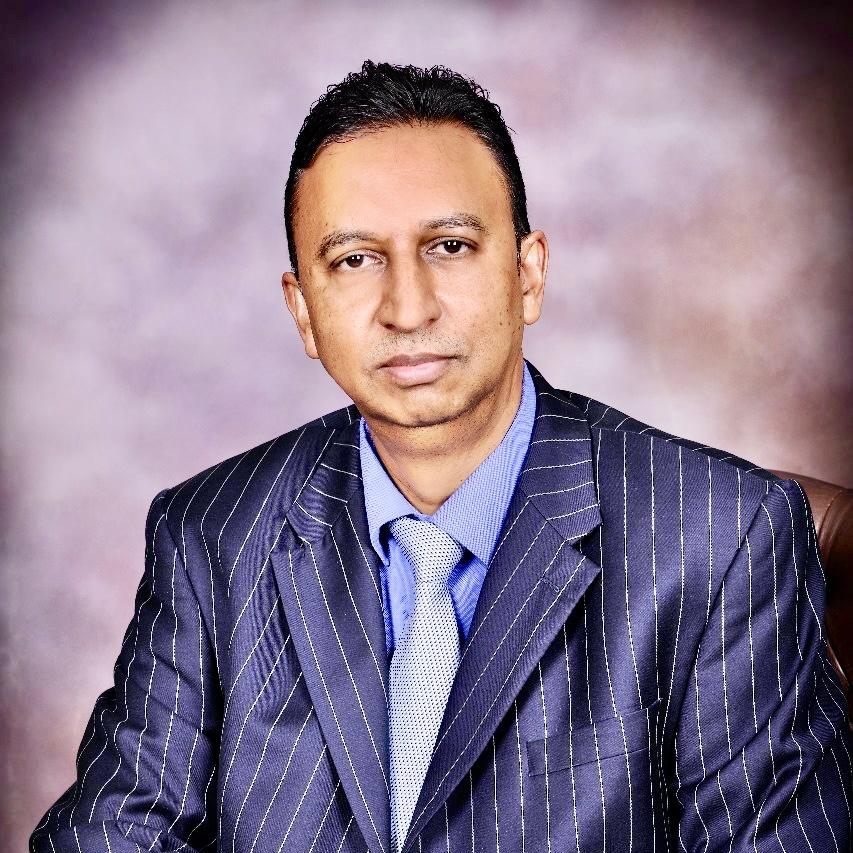Episode Transcript
[00:00:00] Hi everyone.
[00:00:01] Welcome to the VNO ESI Africa Podcast, where we delve into the crucial issues surrounding power and energy. I am your host, Professor Vali Pariachi, and today we're tackling a compelling question.
[00:00:19] Open code Will or is AI artificial intelligence a panacea to solving most of life's problems?
[00:00:32] Specifically, we will explore its potential role in addressing the ongoing electricity crisis in South Africa, a situation exacerbated by previously load shedding, now load reduction, exorbitantly high electricity prices, aging infrastructure, financial limitations and complex political landscapes.
[00:01:03] First, let's take a moment to assess the current state of South Africa's electricity grid.
[00:01:10] Load reduction has now become a distressing aspect of daily life, interrupting routines, crippling productivity, and diminishing our quality of life.
[00:01:23] Beyond merely alleviating this crisis, we need to fundamentally transform our energy landscape.
[00:01:32] So can AI or artificial intelligence be the answer we're looking for?
[00:01:40] AI presents remarkable opportunities, especially in optimizing operations within the electricity sector.
[00:01:50] One significant application is in energy demand forecasting. By employing machine learning algorithms, we can analyze vast data sets that include historical consumption patterns, seasonal fluctuations, temperature changes, and even trends derived from social media.
[00:02:15] This enhanced forecasting is crucial in predicting spikes in electricity demand, enabling grid operators to allocate resources sufficiently and avoid situations leading to load shedding or even load reduction.
[00:02:37] Moreover, AI can greatly improve the management of aging infrastructure.
[00:02:44] Many of South Africa's power plants require urgent upgrades.
[00:02:50] By using AI driven maintenance systems, we can potentially predict equipment failures before they happen by analyzing telemetry data from transformers and generators, etc. Etc.
[00:03:10] This proactive approach to maintenance not only minimizes downtime, but also boosts grid reliability, establishing a more resilient energy supply for everyone.
[00:03:26] Another vital area where AI can contribute to the integration of renewable energy sources.
[00:03:34] South Africa has abundant solar and wind resources, yet their intermittent nature poses challenges to grid stability.
[00:03:44] AI can help us optimize energy storage systems within smart grids.
[00:03:51] For instance, AI algorithms can determine when to store excess solar energy during sunny days and when to release it back into the grid during high demand periods.
[00:04:07] This capability not only enhances grid stability, but also supports the country's transition to a sustainable energy ecosystem.
[00:04:20] Furthermore, IT AI enhances real time monitoring and response systems.
[00:04:27] Advanced sensors combined with AI can facilitate automatic outage detection and response, so when a fault occurs, these systems can instantly redirect power and notify maintenance teams, greatly reducing the time taken to resolve issues and restoring power more efficiently.
[00:04:54] AI can also support dynamic pricing models where electricity prices fluctuate based on real time demand.
[00:05:05] This system encourages consumers to shift their usage to off peak hours, alleviating pressure on the grid and contributing to a more balanced energy distribution.
[00:05:20] However, it's important to emphasize that for AI to be effective, it must complement a holistic approach.
[00:05:30] Implementing AI technologies in isolation will not solve our issues.
[00:05:37] We need robust policies, investment in infrastructure and enhanced collaboration amongst government, private sectors and academia to create an environment conducive to these technologies.
[00:05:59] Let's also consider the societal implications of AI in energy management.
[00:06:07] Will AI create new jobs or will it replace current workforce roles?
[00:06:15] As we embrace AI, we must prioritize upskilling the workforce to manage and develop these advanced technologies effectively ensuring that human expertise remains at the core of a energy management.
[00:06:36] We must address the ethical implications surrounding the implementation of AI.
[00:06:43] Issues of privacy, data security and algorithmic bias are critical. We must ensure that we deploy AI responsibly, provide equitable benefits to all communities and actively engaging citizens in the conversation about how these technologies will affect them.
[00:07:10] Whilst AI shows incredible promise, we must acknowledge that it cannot replace the depth of human consciousness.
[00:07:21] AI does not possess emotional intelligence, ethical reasoning or the capacity to fully understand human experiences.
[00:07:33] Whilst AI can assist in providing data driven insights and recommendations, the ultimate decisions should emerge from human values and understanding.
[00:07:47] Maintaining this balance is essential to as we continue to develop AI technologies.
[00:07:56] In summary, whilst AI has the potential to address many pressing challenges within South Africa's energy sector, it is not a magical solution. I repeat, it's not a magical solution.
[00:08:16] It won't resolve our problems overnight. The key lies in thoughtfully integrating AI into our existing systems whilst encouraging collaboration, maintaining ethical standards and prioritizing sustainability.
[00:08:36] Thank you for joining me today as we explore the transformative potential of AI in reshaping our energy landscape. I encourage you to continue this conversation, share your thoughts and hold us accountable as we navigate these essential changes in our energy sector.
[00:09:00] Until next time, keep questioning, keep exploring and remember, the future of energy is in our hands. Your ends this is your favorite power and energy group, Professor Vali Pariachi signing off for now.
[00:09:21] Thank you.


